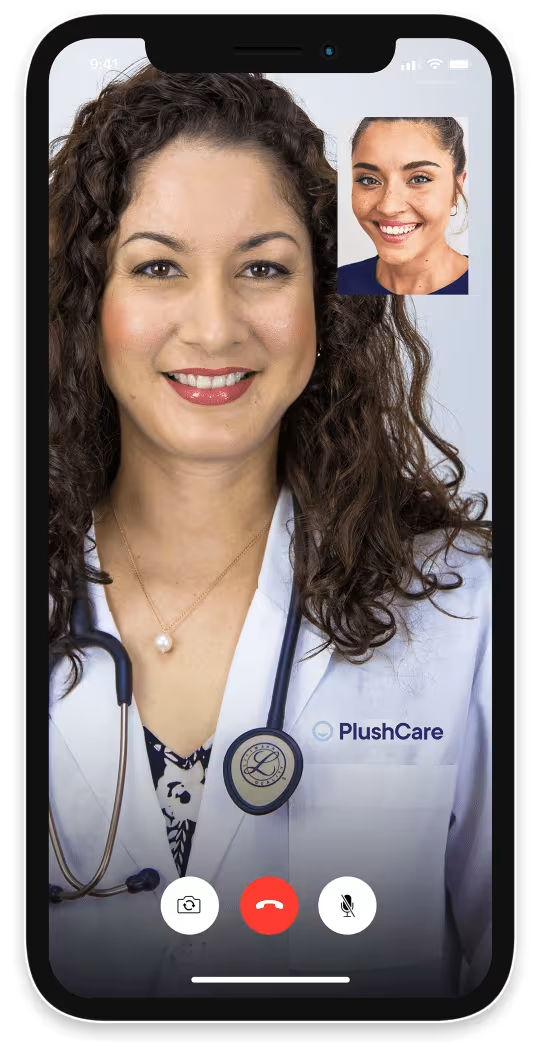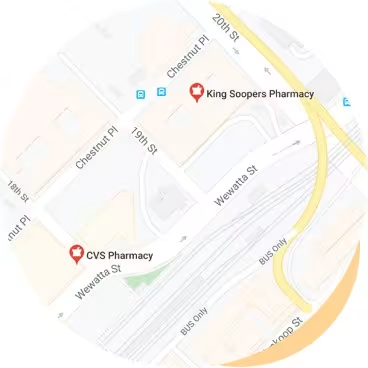
How to treat GERD and acid reflux
GERD can be managed through lifestyle changes, such as dietary adjustments and avoiding triggers, or with the help of medications.
Help manage GERD by:
Eating a diet that helps with acid reflux
Maintaining a healthy weight
Avoiding heavy meals, spicy foods, and carbonated drinks
Elevating your head during sleep
Breathing exercises
GERD and acid reflux medication
Over-the-counter medications, such as antacids and some H-2 receptor blockers, can help relieve mild symptoms of GERD. However, our doctors offer several prescription medication options for more persistent symptoms. These medications can also prevent GERD symptoms from occurring.
H-2 receptor blockers: Prescription-strength H-2 receptor blockers, a type of antihistamine, provide long-term symptom relief and help decrease acid production in the upper GI tract for up to 12 hours. These include prescription-strength famotidine and nizatidine.
Proton pump inhibitors: Proton pump inhibitors (PPIs) are more potent acid blockers than H-2 blockers, allowing time for damaged esophageal tissue to heal. Prescription options include:
Our doctors may also recommend over-the-counter PPIs, including Prilosec (omeprazole).

What is the difference between GERD and acid reflux?
Gastroesophageal reflux disease (GERD) occurs when stomach contents constantly move back into your esophagus. This backwash (acid reflux) often contains excessive stomach acid, which can irritate your esophagus and cause persistent heartburn. Some risk factors that may cause GERD include being overweight, overeating, and consuming fatty foods.
Many people experience acid reflux, heartburn, and indigestion occasionally. The most common cause of acid reflux is consuming fatty or acidic foods. However, if acid reflux happens repeatedly, you may have GERD.
GERD can lead to complications and more severe health problems, such as Barrett's esophagus, and can even increase the risk of esophageal cancer, if left untreated. Fortunately, our trusted doctors can walk you through several options to help manage your condition.
If you experience chest pain, shortness of breath, and jaw or arm pain, seek immediate medical attention. These may be signs and symptoms of a heart attack.
Book an appointment with one of our doctors if you:
Experience severe or frequent symptoms of heartburn
Take over-the-counter medications for heartburn/acid reflux more than twice a week
Experience difficulty swallowing, sore throat, or frequent regurgitation
GERD and acid reflux FAQs
How to cure GERD permanently?
The best way to prevent GERD symptoms is by making healthy lifestyle changes, such as eating a healthy diet and maintaining a healthy weight. With proper management, including lifestyle modifications and prescription medications, you may be able to treat GERD fully. Our doctors can work with you on a holistic treatment plan to manage your GERD.
What to eat with GERD?
Certain foods can help improve symptoms and reduce acid reflux, including
High-fiber foods (oatmeal, brown rice, root vegetables)
Alkaline foods (bananas, melons, cauliflower)
Watery foods (watermelon, lettuce, herbal tea)
How do you test for GERD?
Our physicians may be able to conduct an initial evaluation of your symptoms to determine if you may have GERD based on your symptoms and medical history. They may also start you on a trial of proton pump inhibitor medications to see if your symptoms improve, which would support a diagnosis of GERD. However, for more severe cases, our doctors may need to refer you to a local specialist for further testing, including an endoscopy, pH monitoring, and other exams.
How to get GERD and acid reflux medication online

Step 1
Book a GERD treatment appointment.
Book a same day appointment from anywhere.

Step 2
Talk to your clinician regarding your GERD symptoms.
Visit with a doctor on your smartphone or computer.

Step 3
Pick up your medication for GERD.
We can send prescriptions to any local pharmacy. Prescriptions are provided at the doctor’s discretion.
Related conditions to GERD
Other gastrointestinal conditions may cause similar symptoms, including acid reflux. Below is a list of related conditions to discuss while meeting with one of our doctors.
Frequent heartburn is one of the main GERD symptoms.
Hernia (hiatal)
Hiatal hernias can cause acid reflux and GERD symptoms like heartburn due to the weakening of the lower esophageal sphincter.
Gastritis can worsen GERD symptoms by increasing sensitivity to acid reflux.
Patients with IBS might be more likely to have GERD, and vice versa. This may be due to both conditions sharing root issues related to gut sensitivity.
Those with Crohn's may be more likely to develop GERD. This could be because of the inflammatory effects of Crohn's disease, which can affect the GI tract.
GERD treatment pricing details
How pricing works
To request GERD treatment and get a new or refill on your prescription, join our monthly membership and get discounted visits.
Paying with insurance
Membership
$16.99/month
First month free
Visits
Copay
30 days of free membership
Same-day appointments 7 days a week
Unlimited messages with your Care Team
Prescription discount card to save up to 80%
Exclusive discounts on lab tests
Free memberships for your family
Cancel anytime
Visit price with insurance
Often the same as an office visit. Most patients with in-network insurance pay $30 or less!
We accept these insurance plans and many more:
Paying without insurance
Membership
$16.99/month
First month free
Visits
$129
30 days of free membership
Same-day appointments 7 days a week
Unlimited messages with your Care Team
Prescription discount card to save up to 80%
Exclusive discounts on lab tests
Free memberships for your family
Cancel anytime
Visit price without insurance
Initial visits are $129.
If we're unable to treat you, we'll provide a full refund.
GERD and acid reflux resources
Sources:
PlushCare is dedicated to providing you with accurate and trustworthy health information.
Cleveland Clinic. GERD (Chronic Acid Reflux). Accessed on July 24, 2023. https://my.clevelandclinic.org/health/diseases/17019-gerd-or-acid-reflux-or-heartburn-overview
Harvard Health. 9 at-home treatments for acid reflux. Accessed on July 24, 2023. https://www.health.harvard.edu/newsletter_article/9-ways-to-relieve-acid-reflux-without-medication
Mayo Clinic. Gastroesophageal reflux disease (GERD). Accessed on July 24, 2023. https://www.mayoclinic.org/diseases-conditions/osteoporosis/in-depth/osteoporosis-treatment/art-20046869
PlushCare content is reviewed by MDs, PhDs, NPs, nutritionists, and other healthcare professionals. Learn more about our editorial standards and meet the medical team. The PlushCare site or any linked materials are not intended and should not be construed as medical advice, nor is the information a substitute for professional medical expertise or treatment.